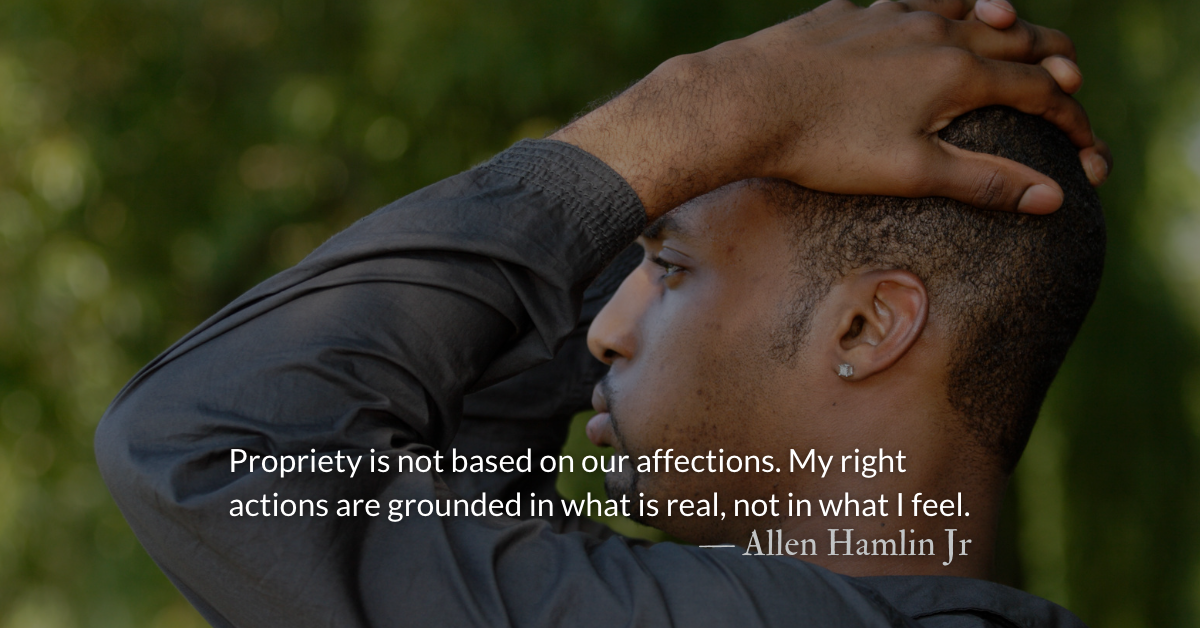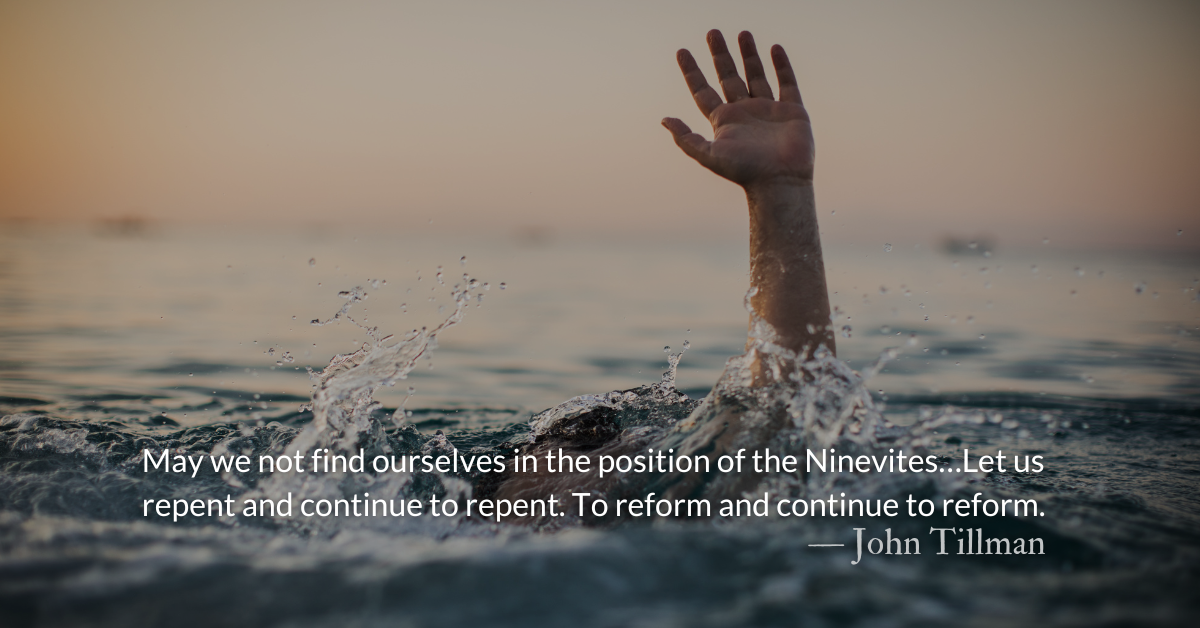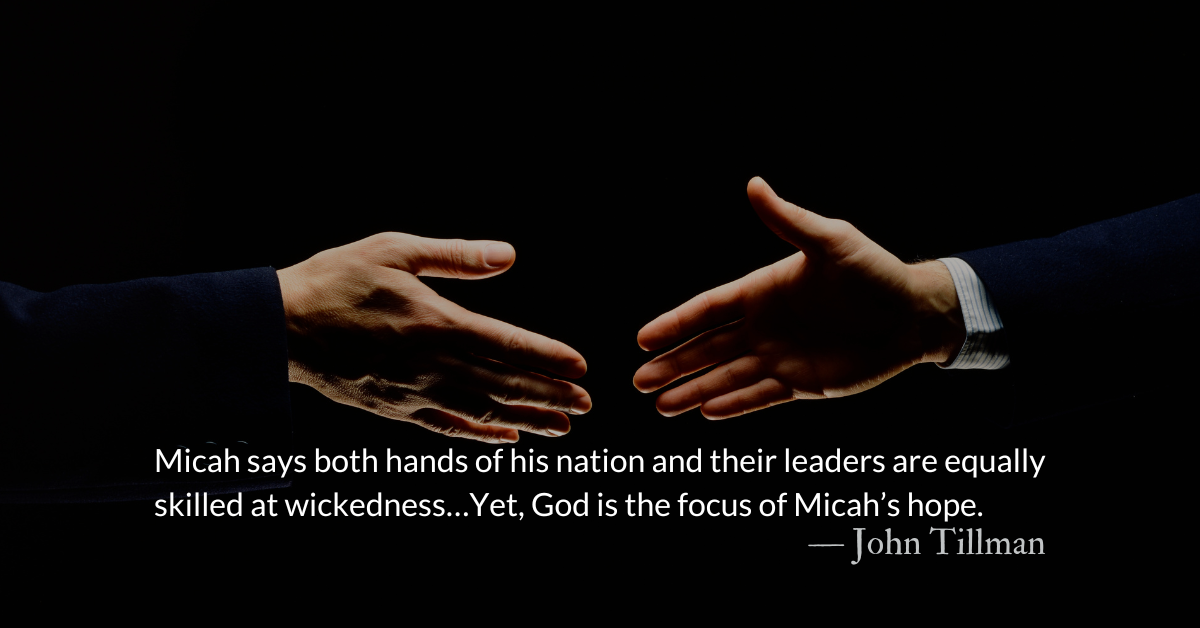Scripture Focus: Deuteronomy 21.15-17
15 If a man has two wives, and he loves one but not the other, and both bear him sons but the firstborn is the son of the wife he does not love, 16 when he wills his property to his sons, he must not give the rights of the firstborn to the son of the wife he loves in preference to his actual firstborn, the son of the wife he does not love. 17 He must acknowledge the son of his unloved wife as the firstborn by giving him a double share of all he has. That son is the first sign of his father’s strength. The right of the firstborn belongs to him.
Reflection: Do You Feel Like It?
By Allen Hamlin Jr
In the age of “you do you,” we often feel more freedom to shape our identity, and we indulge ourselves to choose our own actions and responses. As a result, many have determined that there’s no obligation to do anything that falls outside of what they want, what they’re in the mood for, or what they think reflects the self that they want to present to the world.
Even in a life of faith, it’s easy to lean on our present emotions and our sense of self-determination to undergird the nature of our prayer and worship. Should I go to church? Should I give thanks? Should I praise?
I just don’t feel like it, so I won’t.
In the midst of establishing the law of the nation, the Lord sets forth a heavy chapter featuring five intense scenarios. Deuteronomy 21 addresses unsolved murder, prisoners of war, the death of defiant children, and capital punishment.
Within this litany of legislation is one contrasting presentation (v.15-17). Rather than an occasion of death, the focus is on love. What or whom we love often drives our actions and responses.
But the Lord says this should not be the case. Regardless of which son has the father’s favor (v.15), there is a reality that drives the right response. The firstborn is the firstborn, and shouldn’t be treated otherwise according to the father’s feelings (v.16-17).
Propriety is not based on our affections. My right actions are grounded in what is real, not in what I feel.
When we look at Jesus, we know that he too is the Firstborn–of all creation. He is the Heir. Whether I feel like worshiping or obeying him, the reality of his worth doesn’t change. And the proper response for us is to give him his due.
Even when I don’t feel like it, I will.
As Deut 21 shows us, despite questions, fickle desires, favorites, frustrations, or vindictiveness, we are called to remain rightly responsive to the realities of who God is, and who we are. God is the one who makes atonement (v.8), who sets us in right relationship with himself. Those truths remain the guardrails of our responses, whatever our hearts may feel in the moment.
Our calling is to do what is right in the sight of the Lord (v.9), rather than determining for ourselves what we want our engagement with God, and the world, to be.
Divine Hours Prayer: The Call to Prayer
Taste and see that the Lord is good; happy are those who trust in him! — Psalm 34.8
– From The Divine Hours: Prayers for Summertime by Phyllis Tickle.
Today’s Readings
Deuteronomy 21 (Listen 3:33)
Romans 1 (Listen 5:02)
Read more about Inner Light of the Heart
Centering our hearts on Christ can change our visages, our vision, and our vitality.
Read more about A Long Journey to Maturity
Marks of spiritual maturity include character growing in likeness to God and actions that demonstrate our love for God and care for his people.











